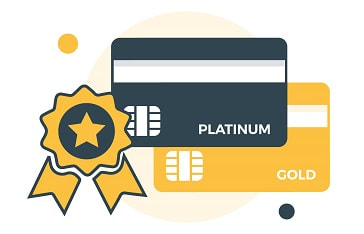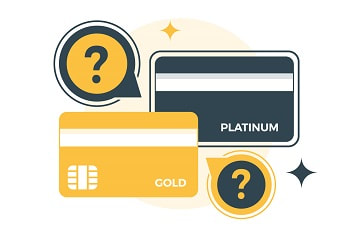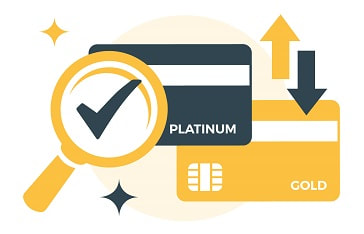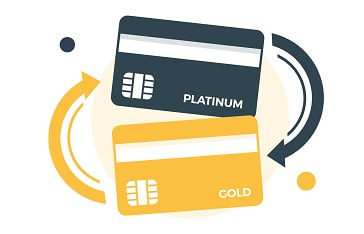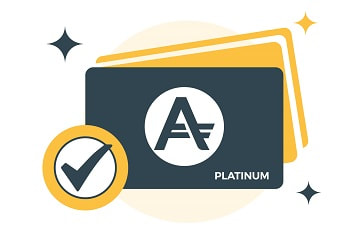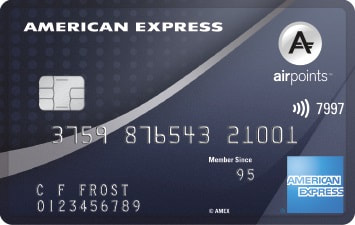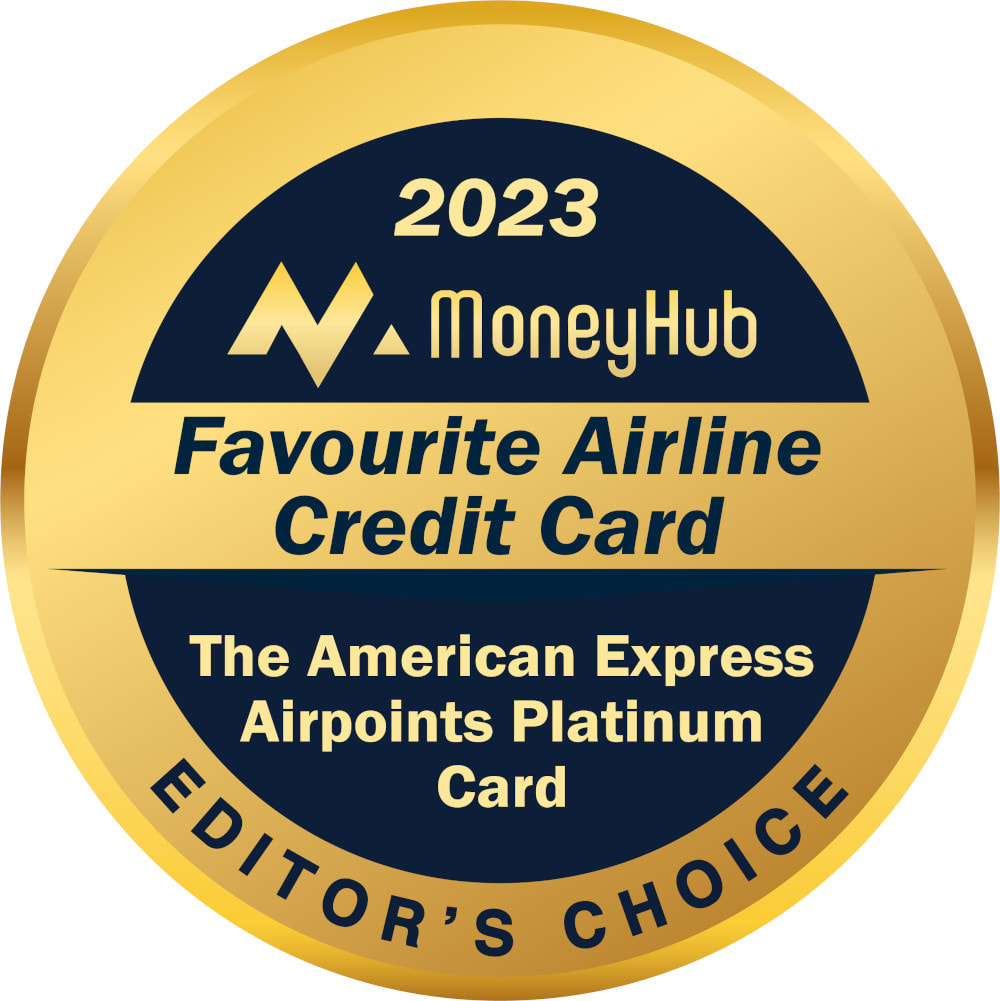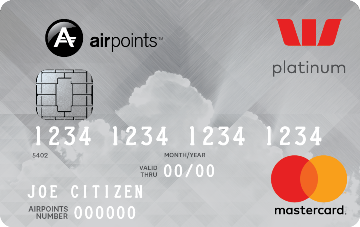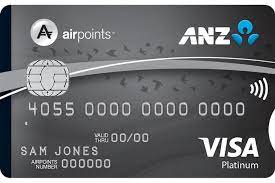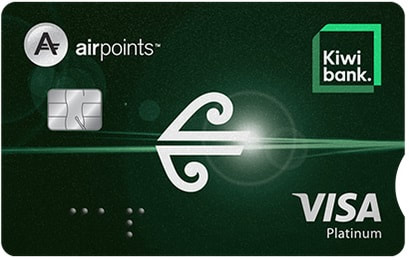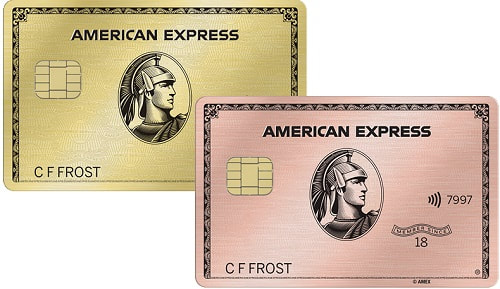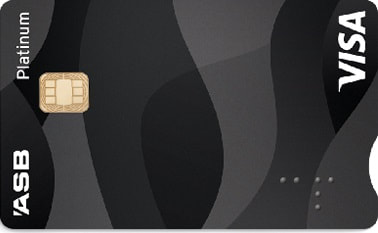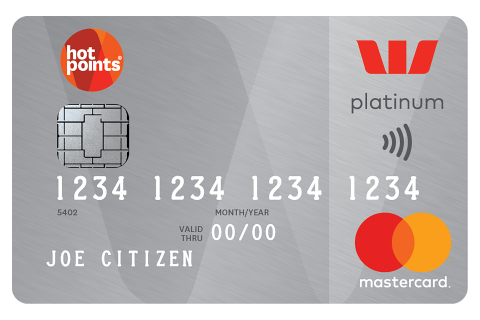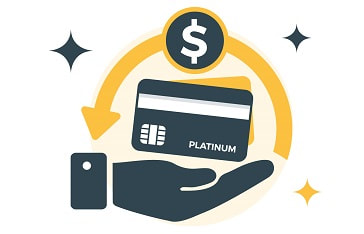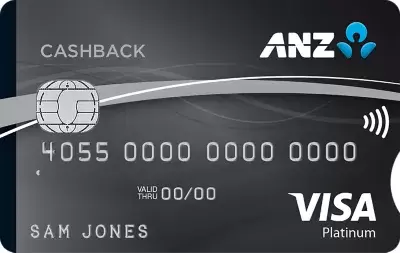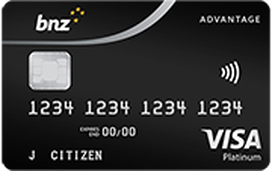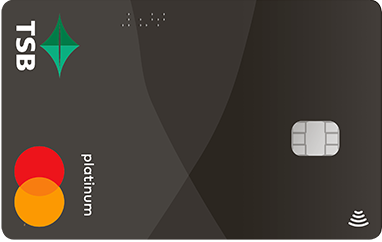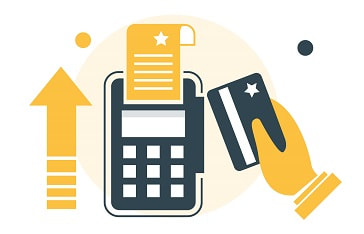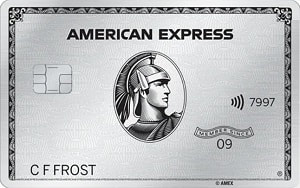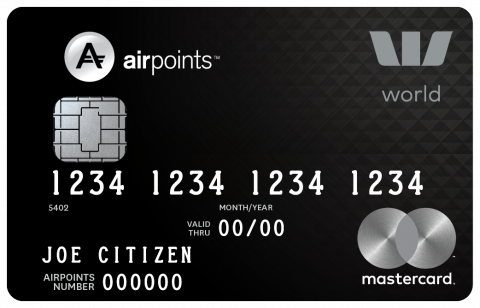The Best Platinum and Gold Credit Cards (July 2024)
Discover the best Gold and Platinum credit cards in New Zealand with our comprehensive comparison guide. Learn about Airpoints, rewards, cashback and other benefits while considering top options for your spending needs. Our guide is designed to help you make informed decisions and answer frequently asked questions.
Updated 20 July 2024
Summary
Our guide covers:
Important: If you need to evaluate in detail whether you can justify a card's annual fee and/or whether you'll use the perks, the card is probably not for you. While the cards listed below have benefits, you'll need to spend to get them. Unless you can repay the balance, they are best avoided altogether. No one even paid sky-high credit card interest rates by using debit or EFTPOS cards.
Advertising Disclaimer: MoneyHub may earn a referral bonus for anyone that’s approved through some of the below links. Our research and findings are independent of any bank, credit card issuer, or product manufacturer/service provider, and have not been endorsed by any of these entities. Please see our Advertising Policy for more details about how we make money.
Update: For the American Express Airpoints Platinum card, the current $59 spend = 1 Airpoints Dollar rate is valid until 2nd October 2024. From 3rd October 2024, the rate will change to $70 spend = 1 Airpoints Dollar. For the purposes of this guide, we have used the 1:70 rate.
Summary
- Our review of gold and platinum guides outlines the best options for your spending needs.
- All the cards listed below can be applied for in minutes and offer the best offerings through rewards and benefits.
- Most credit card applications require you to be financially capable and not tied down with existing consumer debt which is often expensive to service and seen as a higher risk to a credit card issuer.
- Our dedicated review covers the options available if you're looking specifically for Platinum Airpoints-earning cards.
- If you're looking to earn points for business class flights, they are available, but you'll most likely need an AMEX - our dedicated Credit Cards That Earn Business Class Flights guide has more details and everything you need to know to make it possible.
Our guide covers:
- What are Gold Cards and Platinum Cards?
- Choosing a Platinum or Gold Credit Card - Must-Know Facts and Considerations
- Specific Benefits Offered by Selected Gold and Platinum Credit Cards
- Platinum and Gold Credit Cards
- Frequently Asked Questions
Important: If you need to evaluate in detail whether you can justify a card's annual fee and/or whether you'll use the perks, the card is probably not for you. While the cards listed below have benefits, you'll need to spend to get them. Unless you can repay the balance, they are best avoided altogether. No one even paid sky-high credit card interest rates by using debit or EFTPOS cards.
Advertising Disclaimer: MoneyHub may earn a referral bonus for anyone that’s approved through some of the below links. Our research and findings are independent of any bank, credit card issuer, or product manufacturer/service provider, and have not been endorsed by any of these entities. Please see our Advertising Policy for more details about how we make money.
Update: For the American Express Airpoints Platinum card, the current $59 spend = 1 Airpoints Dollar rate is valid until 2nd October 2024. From 3rd October 2024, the rate will change to $70 spend = 1 Airpoints Dollar. For the purposes of this guide, we have used the 1:70 rate.
MoneyHub Founder Christopher Walsh shares his views about Platinum and Gold Credit Cards:"Platinum and Gold cards are, first and forecast, designed for people who spend a good portion of their income on credit cards and pay them off every month". There is no point having a top tier card if you're paying interest on the balance - you will waste hundreds if not thousands of dollars. If this could you be you, please close this page down now - it's not worth getting a card and getting into debt - it's a big trap and costs you month after month".
"Platinum and Gold cards should offer value-for-money, but many don't. I frequently receive complaints about poor value bank-issued "cashback" and "reward" programs that are offered by gold and platinum credit cards. To find out how "bad" they are, I've put together some videos below to explain Westpac's hotpoints and ASB's True Rewards programs". "ANZ, BNZ and TSB make comparisons easier with easy-to-understand cashback earning rates. Airpoints cards are also easily compared. Overall, American Express' Airpoints Platinum and American Express Gold Rewards cards stand out by way of their Airpoints, rewards and cashback-earning, exceeding any other bank-issued card. However, as with any credit card, all the benefits are lost if you don't pay the balance in full every month". "Whatever card you decide on, make sure it's the best for your immediate needs. Platinum and Gold cards are best when you spend consistently every month and always pay it off in full every time. If you are in any doubt about what you can afford, it's likely that the best credit card is "no credit card - too much. A Stuff.co.nz column I wrote in November 2021 confirms Kiwis are paying hundreds of millions of dollars every year on credit card interest - please don't be part of this trap". |
Christopher Walsh
MoneyHub Founder |
What are Gold Cards and Platinum Cards?
Gold and platinum credit cards are 'prestigious' credit cards that are considered more beneficial to the cardholder than standard credit cards. The most common features are more generous rewards and higher credit limits. However, the benefits vary between cards - some are very generous while others fail to offer the value they should.
The most popular gold and platinum cards tend to be those offered by American Express, Kiwibank, ANZ, BNZ and Westpac. However, with 15+ cards to choose from, what's right for you will most likely be driven by what kind of rewards you want.
The most popular gold and platinum cards tend to be those offered by American Express, Kiwibank, ANZ, BNZ and Westpac. However, with 15+ cards to choose from, what's right for you will most likely be driven by what kind of rewards you want.
Are platinum credit cards worth having?
Platinum credit cards are considered the most beneficial, but the annual fees range from $90 to around $1,250. What's right for you depends on your spending levels and the benefits you're looking for.
Platinum cards have similar features that separate them from standard credit cards:
Platinum cards have similar features that separate them from standard credit cards:
- Higher credit limits (usually $10,000+)
- Cashback, Airpoints Dollars, points specific to a program or another rewards scheme.
- Insurance benefits (such as travel, purchase protection and/or rental car excess cover)
- Lower interest rates (but not always - remember, if you can't pay off a credit card, the best option is a low-interest card or no credit card at all)
- 0% balance transfer deals (which are, from time to time, offered by some credit cards)
- Complimentary extras such as airport lounge access vouchers
Are gold and platinum cards the best cards available?
We would argue that gold and platinum cards offer some of the best value around for anyone using (or wanting to use) a credit card to cover a good proportion of their income.
Know This: No one should rush into a credit card application. For this reason, we've explained the gold and platinum cards below in detail to help your decision-making process. If you are in any doubt about what you can afford, the best credit card is likely "no credit card".
Know This: No one should rush into a credit card application. For this reason, we've explained the gold and platinum cards below in detail to help your decision-making process. If you are in any doubt about what you can afford, the best credit card is likely "no credit card".
Beyond platinum and gold credit cards, what are my options?
There are dozens of credit cards available. We have dedicated guides for each type, including:
- Balance transfer credit cards allow you to pay off an existing credit card with a 0% or very low-interest rate for a set period.
- Cashback and Rewards cards give you money back or a non-financial reward.
- Airpoints Dollars Cards earn Air New Zealand Airpoints Dollars. Our guide to Platinum Airpoints Dollars cards compares all the options available.
- Low foreign transaction fees keep down the cost of spending abroad.
- Travel Money Cards let you travel without getting into debt, and in the case of the Wise Debit Card/Travel Money Card, save on currency conversion fees, ATM fees and spend with the best FX rates.
Our Favourite Gold and Platinum Credit Cards:
|
Christopher Walsh
MoneyHub Founder |
Everyone's credit card needs are different, so we've shortlisted three must-consider options for anyone wanting to hold a top-earning Gold or Platinum credit card:
|
Choosing a Platinum or Gold Credit Card - Must-Know Facts and Considerations
Before you apply for any card, it's important to understand what card will be best for you. We outline what to consider below:
1. How do I know which card gives me the best deal?
What matters most is what rewards you want to earn (cashback, Airpoints Dollars, or points for rewards) and what the card costs. Our card comparison helps you determine what's right for you. Remember - credit cards are not status symbols; if used incorrectly, they are debt generators that can be very difficult to pay off. If you're looking for a credit card but don't want to pay an annual fee, our free credit cards guide lists all the options available.
2. Am I eligible for a gold credit card or platinum card?
Unlike standard credit cards, gold credit cards and platinum cards require higher earnings and often have a minimum age (above 18 years etc.) and a healthy credit history. Generally, the minimum income for a gold or platinum card will be at least $50,000. However, each card has different rules on who can apply.
Important:
Important:
- Our view is that bank-issued cash back and rewards credit cards offer a much lower level of rewards and cashback when compared to American Express.
- Our list of cards below makes this clear - all bank-issued rewards and cashback credit cards have annual fees, meaning you'll need to spend $4,000 - $10,000 per year just to earn enough cash back to cover the annual fee. Rewards are even less enticing - spending $1,500 to have a $10 voucher is, sadly, the norm.
3. Do annual fees matter?
Yes - some gold and platinum credit cards have annual fees that could outweigh their benefits if you don't spend 'enough'. For example, if the annual fee is $150, but you only get $100 worth of rewards or cashback, the card isn't cost-effective. To make a gold or platinum card worthwhile, you need to spend (and promptly repay) as much on it as you're comfortable with.
4. Can I get a high limit credit card?
It depends - CCCFA legislation has made it difficult for credit card issuers to 'go big' on limits. We argue the legislation has positive intentions but has led to problematic day-to-day consequences. This Stuff.co.nz article featuring MoneyHub's founder has more details.
Our view is simple - the minimum credit limit is what the platinum or gold credit card offers. You'll need to apply and complete the forms if you want a higher limit. Only the American Express Platinum Charge Card has an unlimited limit, but this is a top-tier card and won't be suitable or cost-effective for most New Zealanders.
Our view is simple - the minimum credit limit is what the platinum or gold credit card offers. You'll need to apply and complete the forms if you want a higher limit. Only the American Express Platinum Charge Card has an unlimited limit, but this is a top-tier card and won't be suitable or cost-effective for most New Zealanders.
Specific Benefits Offered by Selected Gold and Platinum Credit Cards
There are a range of benefits on offer from gold and platinum cards. Each card offers something different. Overall, the options include:
- Sign-up bonus: This is a one-off benefit. It's usually paid out when you spend a certain amount in a set time, usually the first three months. This will either be a statement credit (for example, $200), a fixed amount of Airpoints Dollars (e.g. 200 or up to 500 sometimes), or a fixed amount of points for a rewards program (e.g. 100,000 AMEX Membership Reward Points).
- Extended warranty, price protection and purchase protection: There are many benefits outlined in this guide by Mastercard and what you can get varies by card. American Express and Visa also offer similar benefits in some cases.
- Travel insurance: If you pay for an overseas trip using your credit card, some platinum cards will provide travel insurance for a set number of days. The cover and trip duration limit varies per credit card and won't usually cover pre-existing conditions or valuables over a certain dollar amount.
- Mobile screen protection: This is a unique benefit where you can claim for any cracked glass or other screen damage if you either paid for your mobile or the monthly plan with a specific credit card. Some American Express cards offer this benefit.
- Airport lounge access and/or other airport benefits: This is a popular feature of platinum cards. Each card has a unique offering - it may be 2-4 vouchers annually to use specific lounges, the ability to spend $30,000 and earn a pair of Air New Zealand Koru Lounge vouchers, or unlimited lounge access to 1,000+ lounges in New Zealand and around the world. Generally, the higher the card's annual fee, the more generous the lounge access benefits.
- For example, many bank-issued Airpoints Dollars credit cards have increased the spending you need to do to earn one Airpoints Dollar or a reward.
- With other cards, benefits have vanished altogether. For example, the BNZ Advantage Visa Platinum credit card previously offered comprehensive benefits, including Purchase Protection, Extended Warranty, and PriceGuard. However, in late 2021 these benefits were terminated. BNZ specifically stated it "regularly conducts reviews of its products and services to ensure they continually meet customers' expectations, are simple and easy to understand.
- The BNZ is not alone in doing this. If any credit card issuer believes the benefits are not used, they risk being removed.
Platinum and Gold Credit Cards
Based on the ~10 platinum and gold cards available in New Zealand, we have grouped the cards into the following categories:
Overall:
- Airpoints Dollars Platinum Credit Cards Comparison
- Rewards Gold and Platinum Credit Cards Comparison
- Cashback Platinum Credit Cards Comparison
- High-Earner and Spender Platinum Credit Cards Comparison
Overall:
- American Express delivers unparallel levels of reward benefits and cardholder perks at a time where the banks have scaled down significantly while keeping their annual fees unfavourable high.
- If you’re happy to set up a direct debit or spend a couple of minutes making a manual payment every month to clear the balance, AMEX offers valuable credit cards for anyone who wants to earn considerably more rewards for the same dollar spend as a bank-issued platinum credit card. We continue to watch the market carefully,
- The TSB Cashback card arguably works well with any AMEX card where a merchant doesn’t accept AMEX. Most AMEX cardholders can do most of their monthly spend on an AMEX, but you’ll likely face some limitations although AMEX continues to grow its merchant network.
1. Air New Zealand Airpoints Platinum Credit Cards Comparison
MoneyHub Founder Christopher Walsh shares his views on Air New Zealand platinum credit cards:
|
“When MoneyHub first started, ANZ, Kiwibank and Westpac were very generous with their earning rates – most of their Platinum cards offered around one Airpoints Dollar for every $75 spent. It wasn’t as good as AMEX ($70 spend to generate one Airpoints Dollar), but it was convenient and the annual fees were offset by the Airpoints Dollars earned for many customers. You’d also get a few lounge passes (if you spend enough) which was an added bonus and very much appreciated.
Now it’s very a different story, The banks have cut back the earning rates, meaning you have to spend almost double to earn the same amount of Airpoints Dollars. They’ve also terminated the perks (e.g. no more lounges) but, and this is almost unbelievable, they’ve kept the annual fee the same. So you’re paying the same for a lot less. The media won’t cover it anymore as it’s seen as old news, which means many New Zealanders will be apathetic and renew their bank-issued ‘platinum’ card without considering other options. The cards are listed below and can be compared easily which makes the different earning rates between cards obvious". |
Christopher Walsh
MoneyHub Founder |
American Express Airpoints Platinum CardOur view: The most rewarding Airpoints Platinum card, offering around 40% more Airpoints Dollars per $1 spent than ANZ, Kiwibank and Westpac, travel benefits (including airport lounge vouchers) and a 300 Airpoints Dollar signup bonus. Bank-issued Airpoints Platinum Credit Cards (listed below) don't come close to comparing. This is why the card is our Favourite Airline Credit Card 2023 in our Editor's Choice awards.
|
Westpac Airpoints Platinum MastercardOur view: A Mastercard that has charges the lowest annual fee of all Airpoints Platinum cards while offering extended warranty and purchase protection. However, the cap on Airpoints earning is unwanted and limiting to anyone making a big spend within one month.
|
ANZ Airpoints Visa PlatinumOur view: A standard offering from ANZ with the benefit of earning a year-round Status Points bonus Mastercard that has charges the lowest annual fee of all Airpoints Platinum cards while offering extended warranty and purchase protection. However, the card doesn't offer any airport lounge benefits.
|
Kiwibank Airpoints Platinum VisaOur view: The highest annual fee charged by any bank for an Airpoints Platinum card, the Kiwibank option is low in features and offers the worst earning rate of $115 for 1 Airpoints Dollar. We don't understand why the annual fee is so high and the Airpoints earning so low.
|
2. Rewards Gold and Platinum Credit Cards Comparison
MoneyHub Founder Christopher Walsh shares his views on rewards credit cards and their respective points programs:
|
“Rewards credit cards operate with a specific 'currency' - Westpac has hotpoints, ASB has True Rewards and AMEX has Membership Rewards Points. It's always been confusing to know the differences between the various schemes. To help brings transparency and raise awareness, I've recorded a series of videos (displayed below) explaining these points programs to simplify the pros and cons of each and overview what you can get.
My view is that the best programs are those that offer good value and flexibility. I would argue that AMEX and ASB lead in those areas - Westpac's hotpoints has the right intentions but is convoluted, and, for a platinum-level card, offers very poor cashback/statement credit rewards (around 67 cents of value for every $100 spent). Things are always changing - I strongly encourage you to watch the videos below to understand how each reward credit card's points program works to help make an informed decision". |
Christopher Walsh
MoneyHub Founder |
American Express Gold Rewards CardOur view: We're big fans of the American Express Gold Rewards Card for many reasons. No other credit card offers so much flexibility and generosity, and as more major retailers take American Express, cardholders will compound their rewards and cashback without friction. The free travel insurance and annual dining credit are added perks to make this the ultimate rewards credit card for anyone who likes to dine out and travel locally or overseas.
Know This: What is a Membership Rewards Points?
|
ASB Visa Platinum RewardsOur view: ASB's offering is straightforward - spend $100, get one 'True Reward' dollar to spend on anything ASB offers in its store or retail partners, or invest it into your KiwiSaver (if you're with ASB). It's an uncomplicated system but ultimately you're paying $80 a year to earn 1% of your credit card spend as rewards.
Know This: What is a True Rewards dollar worth? The ASB claims it's worth NZ$1, but annoyingly you can't redeem it for cashback Intstead, the ASB confirms "Every True Rewards dollar is worth one NZ dollar, which you can use at our partner stores, some of their websites or our online store". How much value you get for every True Rewards dollar depends on how you redeem them. However, there are lots of choices:
MoneyHub Founder Christopher Walsh overviews ASB's True Rewards program in the video below: |
Westpac hotpoints® Platinum MastercardOur view: Westpac's hotpoints program is an alternative to Airpoints Dollars, but we believe it's less rewarding than Airpoints Dollars and less flexible given the amount you'll need to spend to earn anough hotpoints for a reward. An alternative is the cashback option, but at 67 cents rewarded for every $100 spent on the card, it's not overly generous.
Know This: What is a Westpac hotpoint worth? It depends on how you redeem them - hotpoints pay is likely to be the worst value, but it's a cash saving, so it had merit. Gift cards for retailers are likely to offer the best value. A summary of three reward options explains the differences:
MoneyHub Founder Christopher Walsh overviews Westpac's hotpoints rewards program in the video below: |
3. Cashback Platinum Credit Cards Comparison
MoneyHub Founder Christopher Walsh shares his views on credit cards and cashback:
|
“Cashback was once widely offered by almost all the banks and their credit cards. Frustratingly, over time, been removed and replaced with obscure award currencies that puzzle cardholders with too many choices and not enough understanding of where the value lies.
"Additionally, cashback offers have become less attractive. For instance, TSB announced a reduction in its cashback rate from $1 for every $70 spent to $1 for every $100 spent from July 2024 onwards. This change highlights the decreasing value of cashback rewards, often making the fees associated with these cards outweigh the benefits". |
Christopher Walsh
MoneyHub Founder |
ANZ CashBack Visa PlatinumOur view: An entry-level cashback card offering around 83 cents back for every $100 spent. Frustratingly you'll need to spend $9,600 to earn enough cashback to cover the annual card fee.
|
BNZ Advantage Visa PlatinumOur view: An mid-market cashback card offering around $1.11 back for every $100 spent, although you'll need to spend $8,100 to earn enough cashback to cover the annual card fee.
|
TSB Platinum MastercardOur view: The leader in cashback; TSB offers a generous cashback card offering around $1 back for every $100 spent. You'll need to spend $9,000 to earn enough cashback to cover the annual card fee.
|
4. High-Earner and Spender Platinum Credit Cards Comparison
Both of the cards below have a specific target audience and are not widely held, with AMEX earning Membership Rewards Points and Westpac earning Airpoints Dollars. We include these two cards to complete the range of gold and platinim credit cards available throughout New Zealand.
American Express Platinum Charge CardOur view: There are a lot of benefits with this card - if you're a high earner (at least over $100,000 p.a), fly business or first class when you travel overseas, travel frequently and enjoy entertaining and hotels, the Platinum Card is likely to be an attractive proposition.
|
Westpac Airpoints World MastercardOur view: Depsite the earning cap throttling down the Airpoints you can earn when you spend over $15,000 in a month, the World Mastercard has a lot of vale. Firstly, anyone who will spend pver $50,000 on the card every six months, the card's annual fee is refunded. Cardholders also benefit from New Zealand's highest Airpoints Dollar earning rates and a selection of perks.
Important: Westpac also offers a hotpoints version of the card, with a reduced annual fee - visit Westpac for more details. |
Frequently Asked Questions
Choosing a credit card isn't easy - we've prepared a list of common queries to help you with some of the specifics of gold and platinum cards.
How much income do you need for a platinum credit card?
It depends on the card, but usually, it will be at least $50,000. You'll also need to show at least one year of earnings if you're employed and sometimes more if you're self-employed. This is because a credit card is an unsecured debt, so the bank or issuer needs to minimise the risk it's not repaid.
Who qualifies for a Platinum credit card? Are they for wealthy p-people only?
No - minimum income levels start at around $50,000 p.a., just below New Zealand's 'average' salary. Beyond income, credit card companies look at your credit history. If you've struggled to repay debt in the past, you will probably find it difficult to have your application accepted. Also, affordability is a big consideration - if your income barely covers your general living costs, then this will be flagged as a risk in your application. After all, credit companies need to be repaid.
Is a Platinum credit card hard to get?
It comes down to how much you earn and your credit history. Credit card issuers reject many applications because of unpaid debts, late payments and/or lack of savings. Depending on the card you're applying for, you'll need to be at least 18 years old and maybe at least 21.
Which is higher - a platinum or gold credit card?
Platinum cards have higher minimum credit limits than gold cards. In many cases, this will be $8,000 or $10,000. The American Express Platinum Charge Card has no limit - this is rare among platinum cards and, for this reason, only suitable for high-earners who always repay their balance.
How many gold and platinum credit cards are there?
The number is small - around ten, including some high-end cards (such as Westpac Airpoints World Mastercard), which we've classified as a Platinum card. There is only one gold card currently - the American Express Gold Rewards Card. Many banks have previously offered gold cards but have stopped doing so.
What is the difference between Visa, Mastercard and American Express (Amex)?
The important differences are merchant acceptance and fees. Visa and Mastercard are accepted anywhere 'credit cards are accepted', whereas Amex isn't accepted at some independent retailers. Our guides to Mastercard vs Visa and Where is Amex Accepted? have more details. Regarding fees, the significant charges are the annual fee, the foreign exchange translation charge, and, if you cannot pay off the balance, the interest rate.
How many credit cards should I have?
Our view is as few as possible, preferably one or none (if you struggle to pay off balances). More than two credit cards can become a hassle and increase the risks of missing a repayment.
How much do credit cards cost?
It depends on three charges:
- The annual fee is what the credit card company or bank charges you for being a cardholder. This, generally, ranges from $0 to $1,250 per year.
- The interest rate - if you repay late, you'll be charged interest. This usually ranges from around 13% p.a. to 25.99% p.a.
- The foreign exchange translation fee - if you buy something that isn't priced in NZD, you'll be charged a percentage fee to 'translate' it back to NZD. This ranges from 0% (offered by the Flight Centre Mastercard) to around 3.50% (Prezzy Cards). The average fee is around 1.50% - 2.50%. Our guide to foreign exchange fees for credit cards has more details.
What rewards can I get from a credit card?
Depending on the card, you'll earn cashback, Airpoints Dollars, other bank or card-specific awards, or nothing. Our guide to rewards and cashback credit cards details what's on offer.
Do I need a large credit limit?
It depends on how much you spend. Some people may be comfortable with perhaps a $5,000 limit and using online banking to transfer money if they reach their credit limit to give them more money to spend. Many gold and platinum cards have $5,000 or $10,000 credit limits which can be increased on application.
Remember - As obvious as it sounds, higher credit limits can mean higher repayments if you spend the balance available. Our view is simple - smaller limits are far easier to manage.
Remember - As obvious as it sounds, higher credit limits can mean higher repayments if you spend the balance available. Our view is simple - smaller limits are far easier to manage.
Do gold and platinum cards support a 'tap & go' style service for Android, Garmin Pay and/or IOS?
Some do, some don't. We've highlighted what each card offers to avoid needing to carry your physical card if that's important to you.
Related Guides
- Best Credit Cards
- Airpoints Platinum Card Comparison
- Best Balance Transfer Credit Cards
- Best Low-Interest Credit Cards
- American Express Credit Cards
- Where is American Express Accepted?
- Credit Cards That Earn Business Class Flights
- RewardPay Review (a service which lets you use an AMEX card to pay IRD and ACC bills)
- American Express Airpoints Platinum Review
- American Express Free Airpoints Card vs Airpoints Platinum
- American Express Platinum Charge Card Review
- Best Free Credit Cards
- Credit Card Minimum Payments
- Credit Score & Credit Reports
- How Credit Cards Work
- Overseas Credit Card Fees
- Credit Card Interest Calculator
- Debt Help

